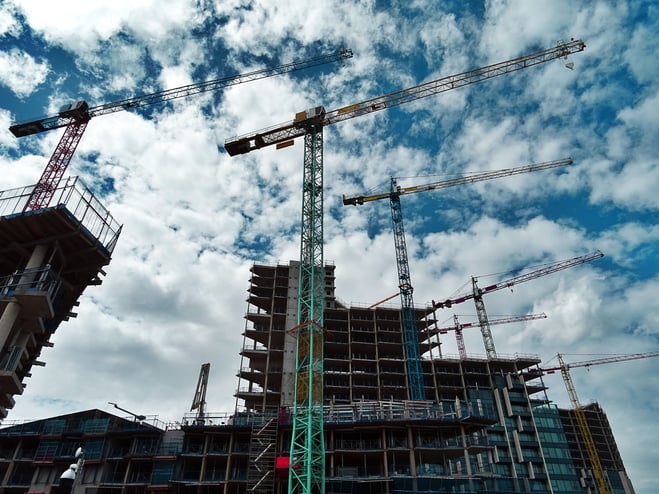


Contractors and Brexit: why the construction industry could be hardest hit

Whilst this excess supply of contractors is an issue rife across the sector, some industries are facing its reverse, with skill-shortages threatening to compromise trading. The construction industry is amongst those expected to be especially hard hit by this issue, Brexit being the main catalyst with immigration laws setting new parameters for working within the UK. It's an issue only amplified by Covid-19's financial impact and social distancing measures, meaning construction as a whole is heading for significant losses in both labour and profit.
Construction: a diminishing workforce
The domestic construction workforce has been diminishing for some time now; with existing workers retiring and young people showing little to no interest in perusing this career path, it’s a gap which has, up until now, been filled by migrant workers. This heavy dependence could cause chaos for building projects across the UK as the new immigration laws are expected to greatly stagger the incoming flow of EU contractors, and potentially devastate the workforce as a whole.
With the construction industry already existing at one of the lowest profit margins that there is, the legislation comes at a particularly precarious time. With lockdown measures bringing about health and safety concerns and financial cutbacks across the board, many construction projects have had to be put on hold, and with remote working not an option, vast amounts of time and money have already been lost.
What impact will the points system have?
The newly implemented rules are designed specifically to inhibit low-skilled workers’ entry into the UK, however, allow for specially qualified EU workers to continue contributing to the economy. In line with this, incoming workers are required to be earning £25,600 or above, making it easier on some sectors than others to continue sourcing EU contractors through this high-skilled workers route. Whilst this will largely leave industries like medical and IT unaffected, others like hospitality as well as construction will significantly lose out.
Though the points-based system provides some leeway in the ability to trade certain characteristics for this salary margin, there is still an absolute minimum of £20,480 required income, and with English and skill level remaining uncompromising factors, it doesn’t offer much hope in recovering this portion of the EU workforce which construction is greatly reliant upon.
The government have explicitly stated that they “will not introduce a general low-skilled or temporary work route” simply explaining that “Employers will need to adjust”. Unfortunately, many construction companies have done so under an illicit ‘low-skill low-pay’ approach which often sees migrant contractors exploited and underpaid, and with the high-skilled worker route being particularly out of reach during this financially challenging time, further profit is being lost due to low-quality labour as a result.
An uncertain future
Whilst the collision of these three factors has left the short-term future of contracting in a rather chaotic state, it’s almost impossible to predict what the long-term landscape might look like after the dust is settled. With Covid-19 an ever-evolving situation, long-term planning is no longer a viable strategy as businesses are now forced to improvise within the unprecedented circumstances. Whilst we can speculate what the impacts of Brexit and IR35 may be in a post-lockdown world, the economy remains in a transitory state. It may be sometime before businesses can return to some degree of normality and revaluate working relations through a clearer lens, however, for the time being, both hirers and contractors must continue to adapt to an unstable and ever-changing work environment in the wake of this so called ‘perfect storm’.
Read part I here
- News
- IR35
- Brexit
- Covid-19
- construction
Related articles


News, IR35, Brexit, Covid-19, construction
Brexit, IR35 & Covid-19: a perfect storm (Part I) ...
How the collision of these three forces is affecting the landscape of temporary work

News, IR35, Brexit, Covid-19, construction
3 months to go until IR35: are YOU Prepared? ...
Check out our top 5 tips to make sure you and your business are ready for the big reform…

News, IR35, Brexit, Covid-19, construction
IR35 is unfair? Part II: are end-hirers the real victims in the so-called ‘war on contracting’? ...
How IR35 could be cornering end-hirers into unfair decisions for contractors 7 minute read

.png?width=1000&height=224&name=engage-logo-1%20(1).png)